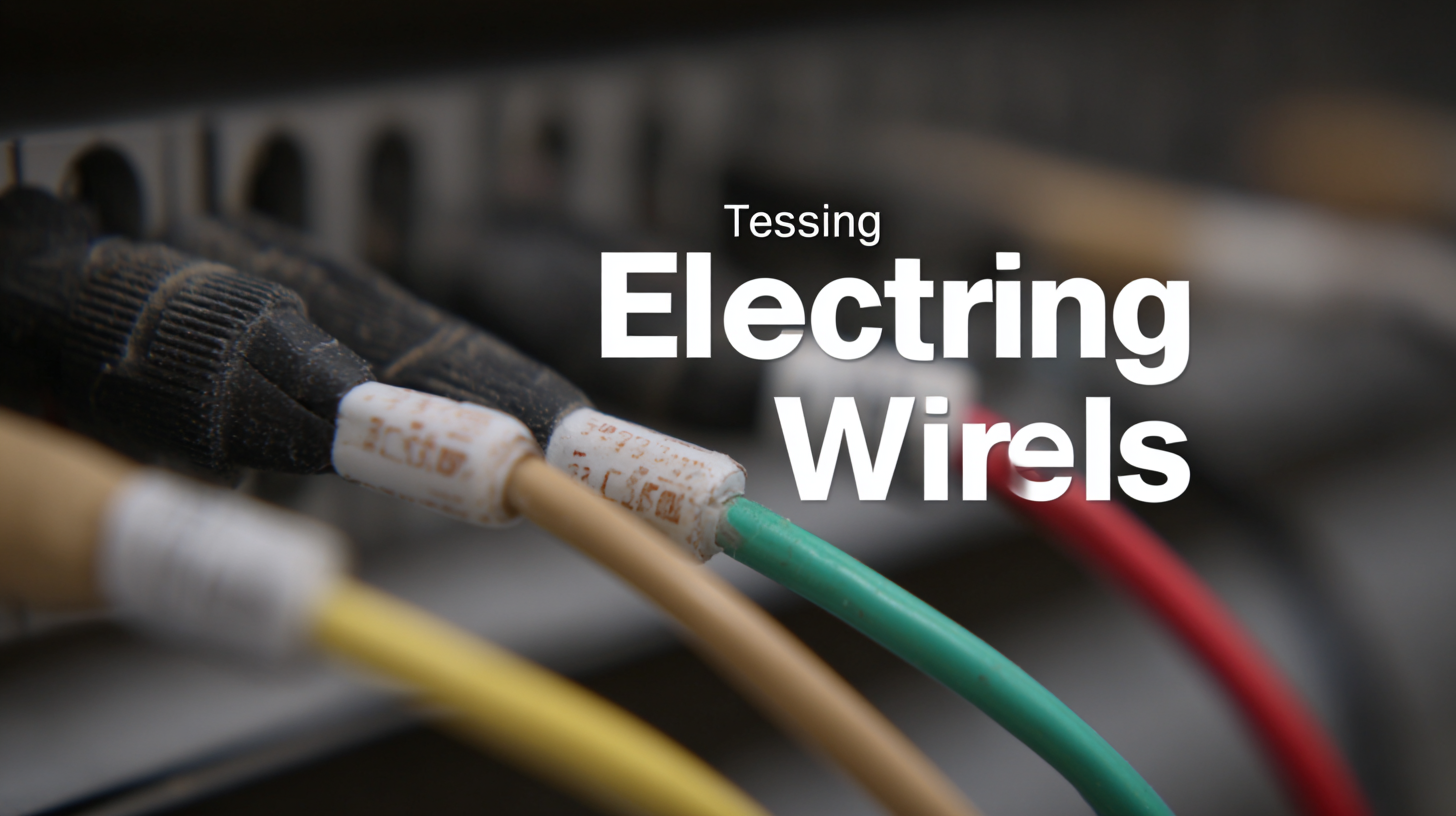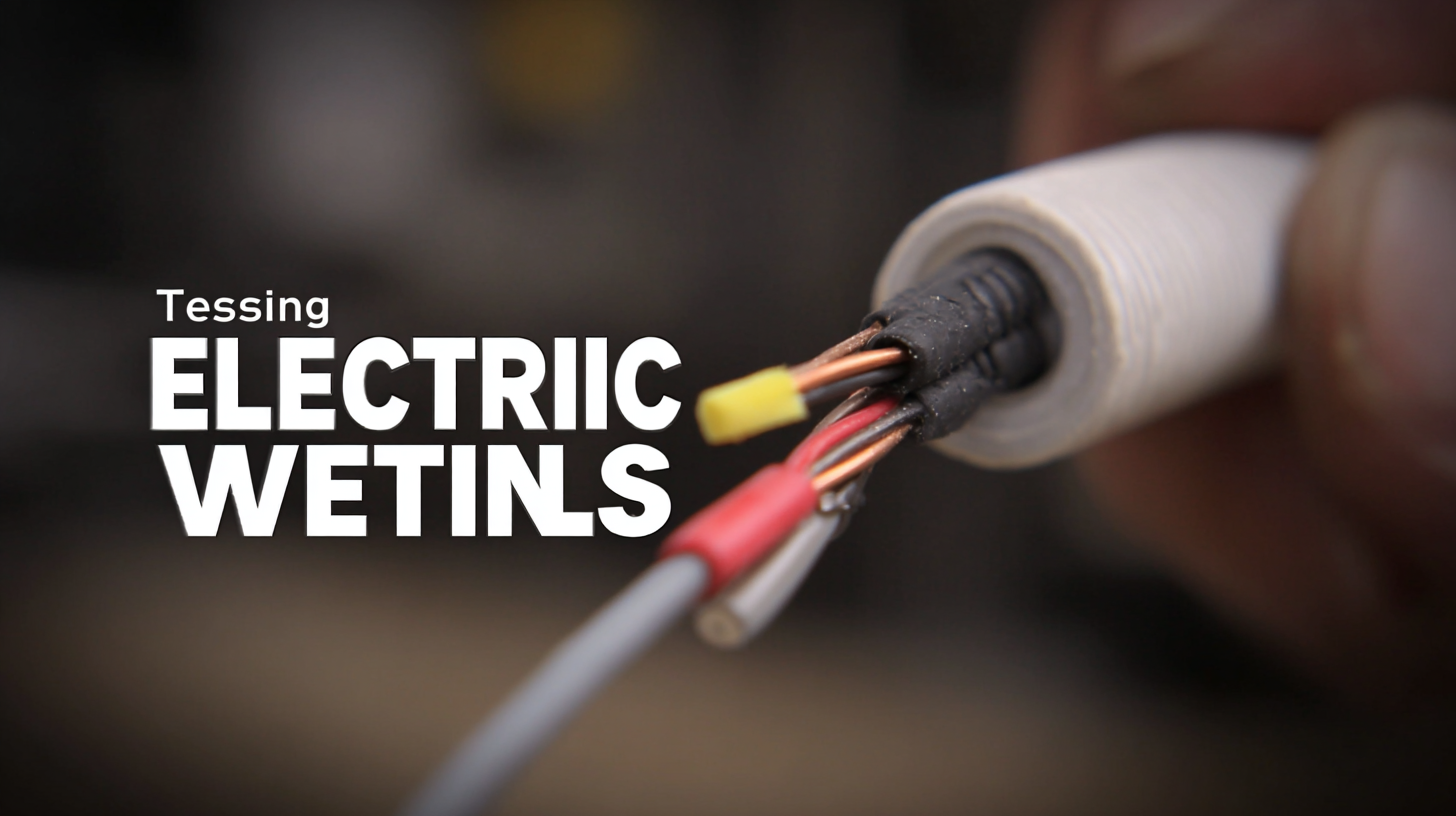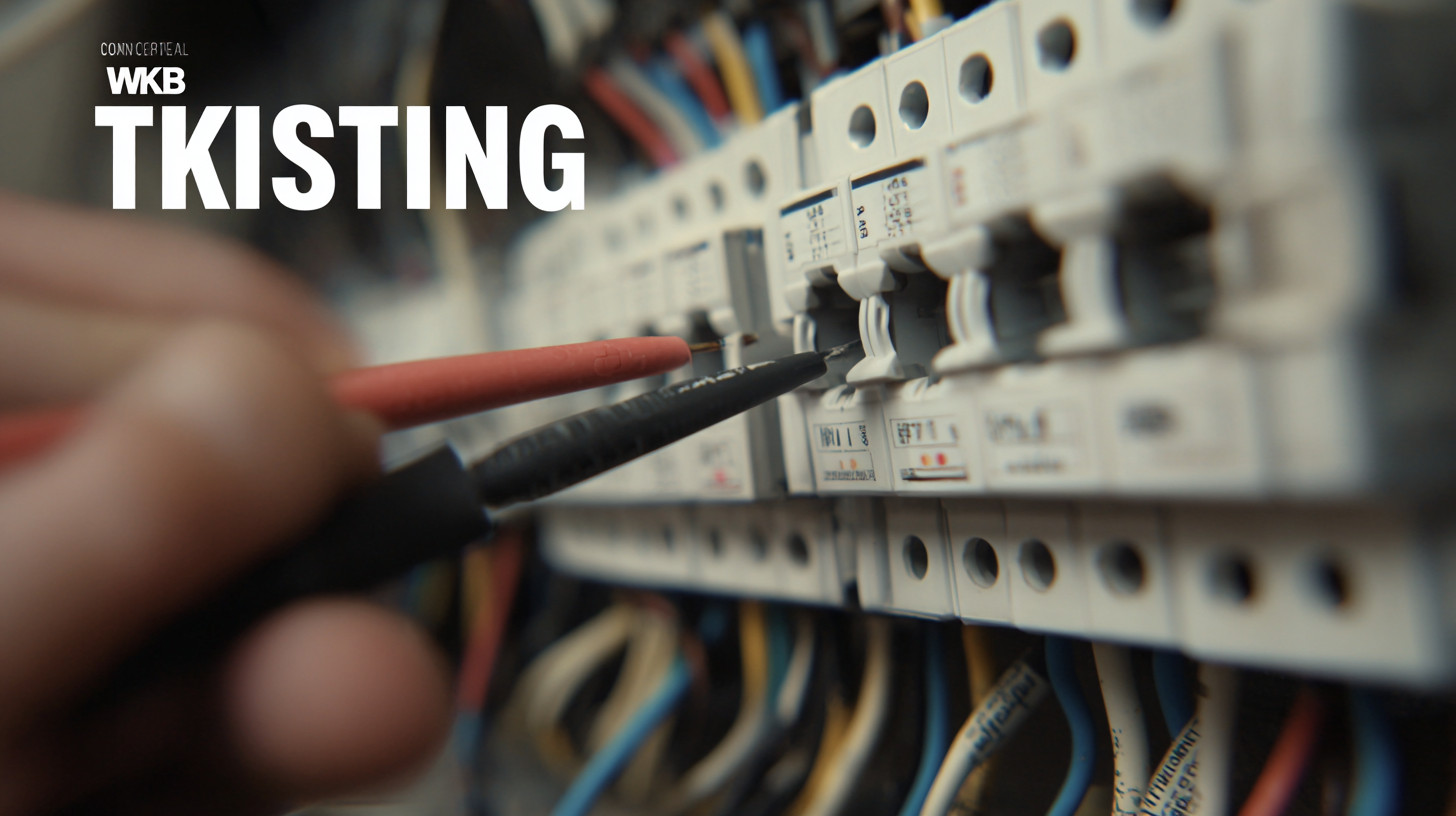- Home
- News
5 Compelling Reasons to Choose the Best Testing Electrical Wires for Your Projects
In the rapidly evolving electrical industry, the importance of choosing the right materials cannot be understated, particularly when it comes to "Testing Electrical Wires." According to a recent report by the International Electrotechnical Commission (IEC), approximately 30% of electrical failures in projects can be attributed to substandard wiring products. This highlights the critical need for reliable testing electrical wires, which not only ensure safety and compliance but also enhance the overall efficiency and longevity of electrical systems. With a variety of wire types available, each tailored for specific applications—from residential setups to industrial environments—it is essential for professionals to understand the unique characteristics and suitable scopes of these products. By selecting the best testing electrical wires, stakeholders can mitigate risks, optimize performance, and ultimately contribute to the success of their projects.

Advantages of Choosing High-Quality Electrical Wires for Project Longevity
 Choosing high-quality electrical wires for your projects is critical to ensuring longevity and reliability. According to industry research, the electrical cables sector is recognized as the second-largest supporting industry in China's economy, just after the automotive industry. This highlights the significance of selecting top-tier electrical materials to meet both safety standards and performance requirements. High-quality wires can withstand higher loads, have better insulation, and exhibit improved resistance to wear and environmental factors, ultimately reducing the risk of outages and failures.
Choosing high-quality electrical wires for your projects is critical to ensuring longevity and reliability. According to industry research, the electrical cables sector is recognized as the second-largest supporting industry in China's economy, just after the automotive industry. This highlights the significance of selecting top-tier electrical materials to meet both safety standards and performance requirements. High-quality wires can withstand higher loads, have better insulation, and exhibit improved resistance to wear and environmental factors, ultimately reducing the risk of outages and failures.
Moreover, projects that invest in premium electrical wiring often see enhanced durability, which aligns with the recent recognition of outstanding engineering projects, such as those that have received national awards for quality. Selecting reputable suppliers known for their stringent quality control not only supports project success but also contributes to the overall safety and growth of the infrastructure sector. Research indicates that as construction and energy projects accelerate in China, the focus on utilizing superior materials will remain paramount in driving efficiency and sustainability in development efforts.
How After-Sales Service Enhances Your Wiring Experience
After-sales service plays a crucial role in enhancing your wiring experience, ensuring that you not only receive a quality product but also the support you need to use it effectively. When you choose the best testing electrical wires, you're investing in more than just materials; you're securing a commitment from the manufacturer to stand by their products. This commitment typically includes customer support, troubleshooting assistance, and warranty options that safeguard your project.
Moreover, a reputable after-sales service often means more than just addressing faults or defects. It can provide invaluable insights into installation techniques, maintenance advice, and updates on the latest innovations in wiring technology. By fostering a relationship with the customer, companies can ensure that any potential issues are resolved promptly, reducing downtime and enhancing project efficiency. This level of support not only empowers individuals and businesses to feel confident in their wiring decisions but also elevates their overall project experience, making it smoother and more satisfactory.
5 Compelling Reasons to Choose the Best Testing Electrical Wires for Your Projects - How After-Sales Service Enhances Your Wiring Experience
| Reason | Benefits | After-Sales Service Impact |
|---|---|---|
| High Quality Standards | Enhanced safety and reliability during usage. | Access to expert advice and assistance. |
| Diverse Options | Flexibility to choose wires for specific applications. | Guidance in selecting the right wire type for projects. |
| Regulatory Compliance | Avoidance of legal issues and penalties. | Support in maintaining compliance post-purchase. |
| Technical Support | Assistance with installation and troubleshooting. | Ongoing support for project challenges. |
| Warranty and Guarantees | Peace of mind and assurance of product quality. | Facilitation of product returns or exchanges. |
Understanding the Cost Benefits of Regular Maintenance for Electrical Wires
Regular maintenance of electrical wires is crucial for ensuring both safety and cost efficiency in any project. According to a report by the National Fire Protection Association (NFPA), defective electrical wiring is one of the leading causes of household fires, accounting for nearly 50,000 incidents annually in the United States. By investing in routine inspections and maintenance, project managers can significantly reduce the risk of such hazards, ultimately saving hundreds of thousands in potential repair costs and insurance claims.
In addition to safety benefits, regular maintenance translates to cost savings through enhanced performance and longevity of electrical wires. The Electric Power Research Institute (EPRI) indicates that proactive maintenance can extend the lifespan of electrical infrastructure by 15-20%. This extension not only reduces the need for frequent replacements but also optimizes energy efficiency, contributing to lower operational costs. Investing in high-quality testing electrical wires and committing to regular upkeep can thus lead to substantial long-term financial benefits while promoting sustainable practices in electrical usage.
Cost Benefits of Regular Maintenance for Electrical Wires
Key Features to Look for When Selecting Electrical Wires for Your Projects
When selecting electrical wires for your projects, several key features should be prioritized to ensure safety and efficiency. The National Electrical Manufacturers Association (NEMA) reports that using wires with the right gauge is crucial; a wire that’s too thin can overheat, causing potential fire hazards. Generally, a thicker wire can handle more current, thus reducing resistance and heat generation.

Another essential feature is the insulation type. Wires come with various insulating materials, each suited for different environments. According to the International Electrotechnical Commission (IEC), a wire with proper insulation can withstand moisture and environmental factors, significantly enhancing lifespan and performance. For outdoor projects, look for wires rated for UV resistance and temperature resilience.
Tip: Always check the wire’s ampacity rating to match it with your project’s power requirements.
Moreover, understanding the wire’s voltage rating is fundamental. Many projects exceed the standard 120V, especially in commercial settings, making it vital to choose wires that can safely handle higher voltages. Using the appropriate voltage-rated wires not only protects equipment but also adheres to legal compliance standards, as per various electrical safety codes.
Tip: Consult the latest NEC (National Electrical Code) guidelines to ensure your selections comply with local regulations.
Step-by-Step Guide to Properly Installing and Maintaining Electrical Wires
When it comes to ensuring the safety and efficiency of your electrical projects, proper installation and maintenance of electrical wires are crucial. Start by selecting high-quality wires that are appropriate for your specific application. Before installation, always turn off power to the area, and double-check your tools to ensure they are suitable for wire handling. Using insulated wire strippers, you can prepare the wires without risking damage. Properly securing connections with high-quality connectors will help to prevent future issues such as short circuits or electrical fires.
Once your electrical wires are installed, ongoing maintenance is key to their longevity. Regularly inspect for any signs of wear or damage, including fraying or discoloration, which can indicate overheating. Keeping wires free from moisture and debris will also extend their life and reduce potential hazards. Additionally, consider documenting the installation process and any maintenance performed, as this can be beneficial for future reference or when troubleshooting issues. By following these steps, you can create a safe and reliable electrical system that meets your project’s needs.
